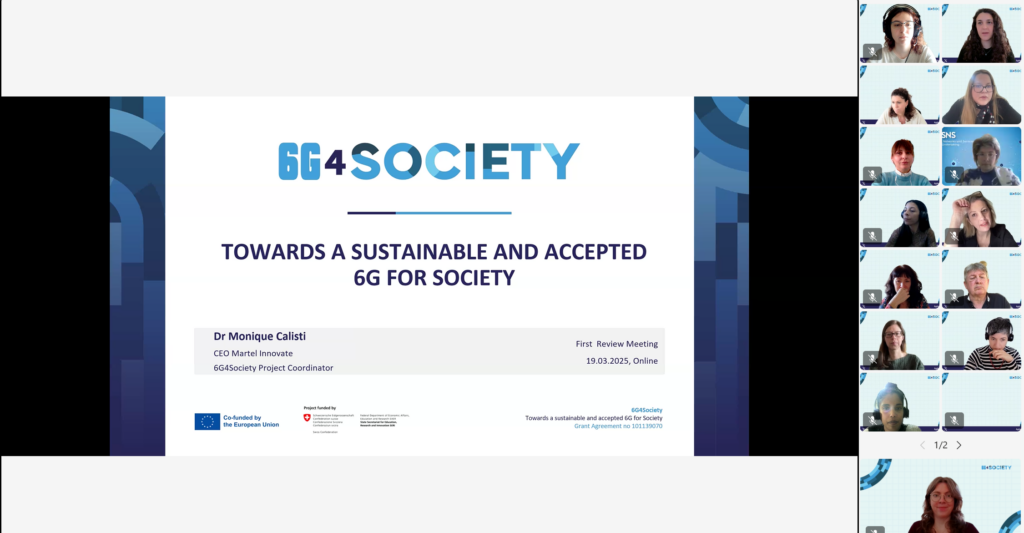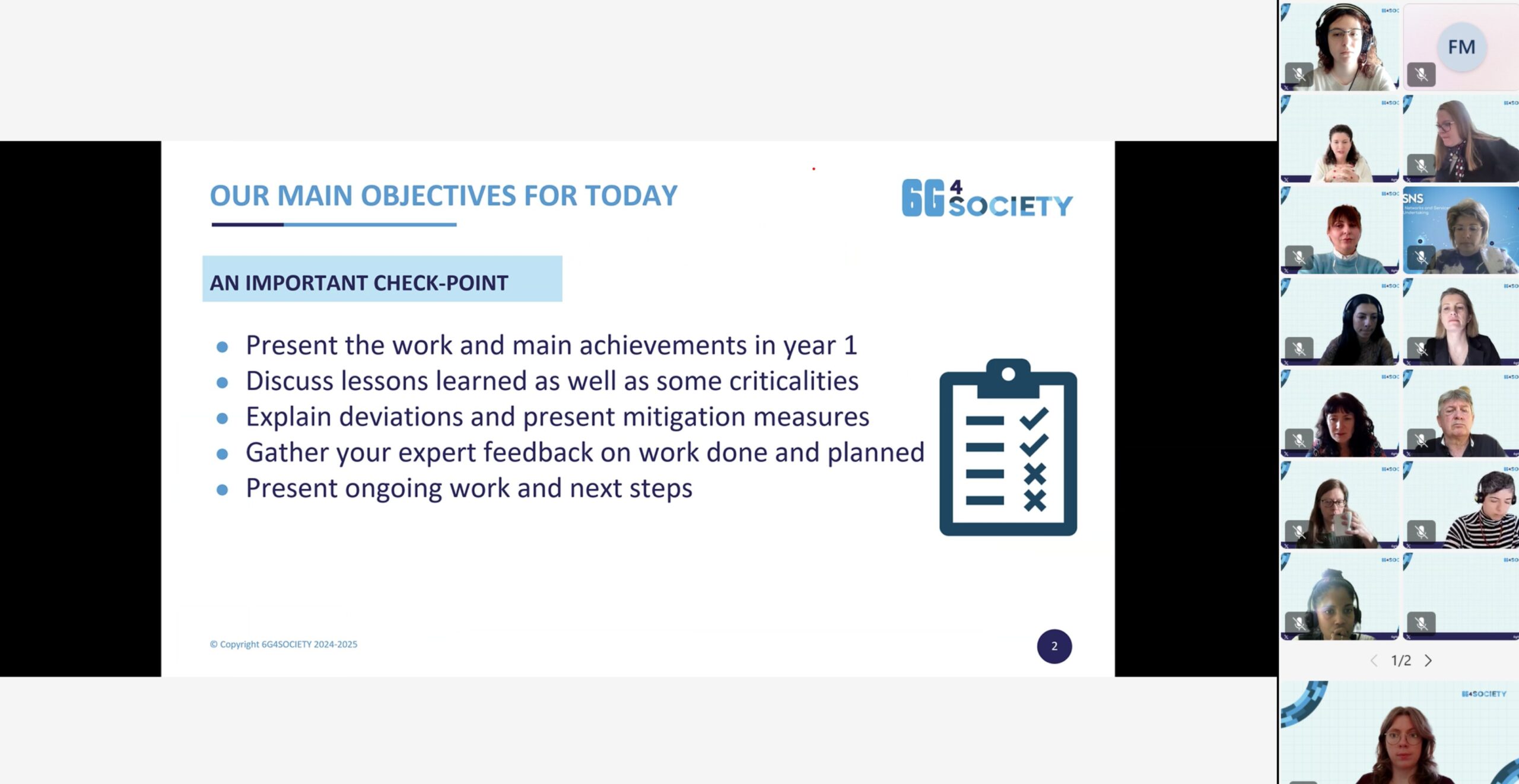
On 19 March 2025, the 6G4Society consortium held its 1st Review Meeting online, marking a key moment in our journey to shape the future of 6G. During this meeting, we reflected on what we have accomplished in the first year, discussing the deliverables submitted and milestones achieved, as well as the lessons learned and our strategic plans for the next phase. We also addressed potential risks and mitigation strategies to ensure smooth project execution. This session served as a valuable opportunity to gather constructive feedback from our reviewers – 6G4Society Project Officer, Chiara Mazzone, and three experts appointed by the European Commission, namely Servane Martine Marie-Jane Fauvet, Shenja van der Graaf, and Ahmed Haddad – helping us refine our approach and maximize impact.
Work Package 1 “Understanding the impact of 6G on society” conducted interdisciplinary research across fields like R&I policy, industrial strategy, and social sciences to explore the societal impact of Information and Communications Technologies. It introduced the Social Acceptance of Technology (SAT) framework, redefining acceptance beyond individual adoption, and proposed an approach for Key Sustainability Indicators (KSIs) to embed sustainability in 6G. The research also highlighted governance challenges that may hinder social acceptance, such as technological assumptions and controversy management. Together, the SAT and KSI frameworks provide essential tools to ensure 6G development aligns with societal needs and global sustainability goals. This Work Package also developed the deliverable D1.1 Societal aspects in 6G technology: concerns, acceptance models and sustainability indicators.
Work Package 2 “Public Engagement and Communication” focused on developing a comprehensive public engagement strategy in deliverable D2.1, including audience segmentation and tailored communication approaches for effective outreach. A key milestone was the launch of the Citizen Survey in nine languages, which has already gathered over 550 responses to understand public perspectives on 6G. To reach diverse audiences, the team carried out multichannel and multilingual promotional activities and organized eight community engagement events across various countries. Additionally, an Information Package for non-experts was developed, featuring infosheets, infographics, and the animated video “What is 6G?”, helping to make 6G more accessible and widely understood.
Work Package 3 “Synergies & Coordination Support” has worked to influence sustainability strategies and establish itself as a key contributor to SNS JU’s methodologies on social acceptance, sustainability, and Key Value Indicators (KVIs). It has built strong collaborations within and beyond SNS JU, actively contributing to working groups and task forces. The project has also engaged key stakeholders in pre-standardization discussions on integrating KVIs into future 6G frameworks and gathered insights from ongoing projects through an SNS Survey on KVI and Social Acceptance. Additionally, WP3 has developed a roadmap for future SAT and KVI activities and organized interactive initiatives to support the SNS JU community in advancing KVIs and acceptance.
Work Package 4 “Impact, Exploitation, and Standardisation” has made key strides in several areas. The project submitted two deliverables and focused on digital and communication impact through social media engagement, video interviews, open-access papers, and event participation to promote 6G societal aspects. The work package also refined Key Exploitable Results (KERs) and conducted a market analysis to assess the commercial potential of 6G innovations. In standardisation, the Ontology Requirements Specification Document (ORSD) and KVI/KSI Ontology was developed, and the project engaged in pre-standardisation discussions within SNS JU and 6G-IA. Finally, 6G4Society also created a Standardisation Roadmap and advanced discussions on ontology interoperability for CEN publication.
Throughout the meeting, the Project Officer and reviewers expressed great interest in several key areas of the project. The reviewers asked questions about the distinction between KVI and KSI, how the SAT framework was developed and how it will be used to measure social acceptance. They also wanted to learn more about the analysis of the results of the Citizen Survey, expressed interest in the consortium’s collaboration with SNS JU and beyond, and wanted to know how the project plans to ensure the continued impact of its outreach efforts. The meeting ended on a positive note, with reviewers eager to see the continued progress and the strengthening of these efforts, and complimenting the innovative approach of 6G4Society and its focus on bringing Social and Humanitarian Sciences to a highly technical field.
We look forward to continuing the important work to ensure that societal and sustainable values are properly embedded into the development of 6G technology, bringing a sociological perspective to technological development.
